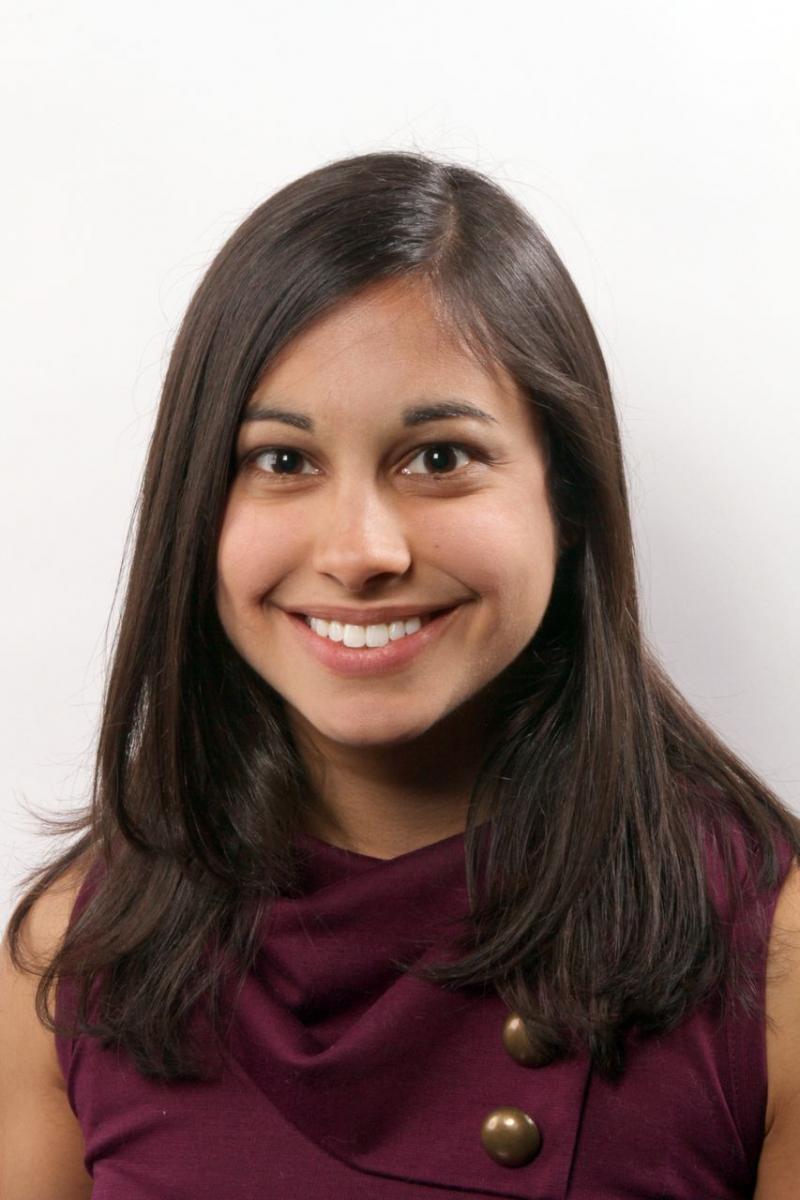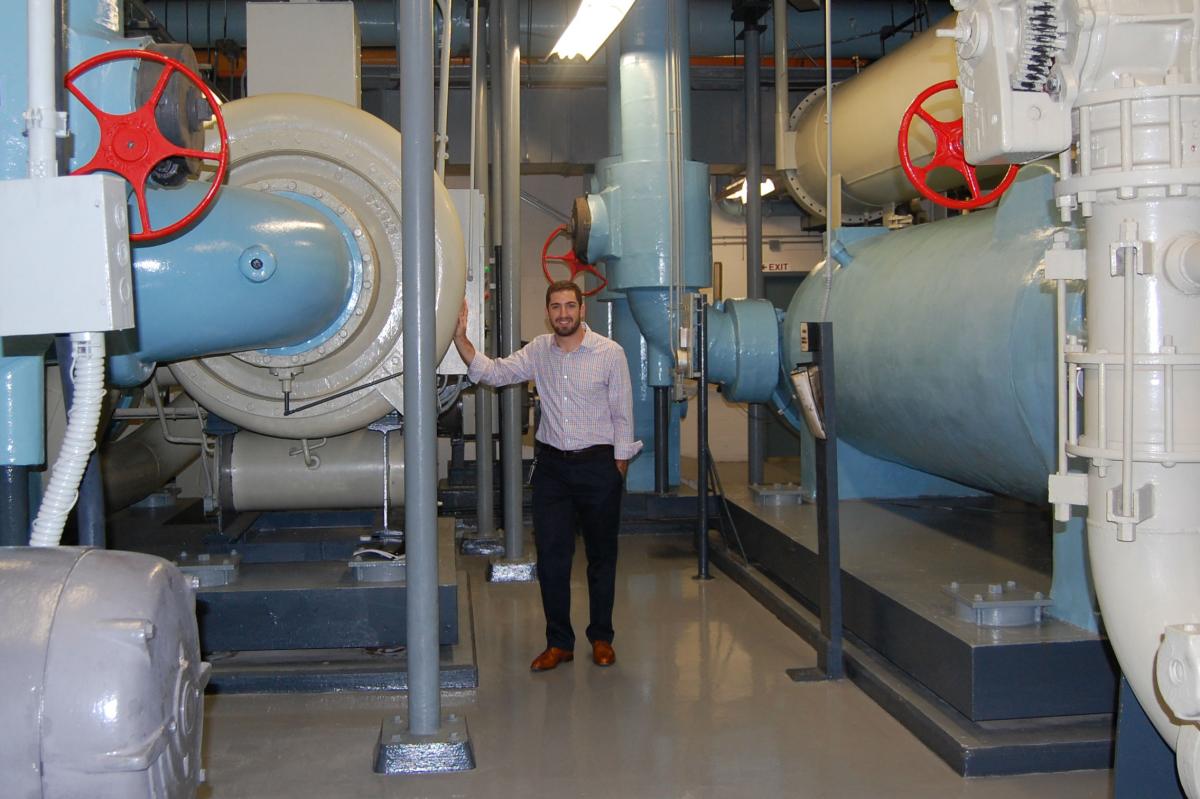EDF Climate Corps fellow | September 20, 2013
Brooke and Harry spent their summer with EDF Climate Corps greening campuses. Brooke worked at San Diego State University bridging silos and identifying ways to improve efficiency in the science buildings. Harry worked with facilities engineers at American International Group on lighting, chillers and also improving the efficiency of their parking structure. Read below for the full story, and if you’d like to green a campus next summer, check out our become a fellow page.

Name: Brooke Malik
Hometown: Cupertino, California
School: University of California, Santa Barbara
Host Organization: San Diego State University
Q: What is one interesting fact about you?
A: David Emmerman and I are both EDF Climate Corps fellows in the same area. We both don’t know many people here, so we started taking a swing dancing class together.
Q: What are you working on this summer?
A: I’m focusing on the science buildings on campus with inefficient HVAC systems. I’m identifying ways for these buildings to be made more energy efficient.
Q: What is the most difficult part about tackling this project?
A: It’s summer and sometimes it’s hard to imagine how the buildings are used the rest of the year when classes are in session. In addition, working at a school, funding is complex and I find myself trying to work across a lot of different people and departments to get things started.
Q: Have you found ways to overcome this?
A: I would say that the more people you can talk to, the more complete picture you can get of an organization. I’m trying to glean useful tidbits from everyone I meet, from student interns to vice presidents – basically anyone who is still on campus and willing to help.
Q: What is one thing you have learned this summer?
A: The ability to work across teams. I’ve frequently had to find ways to bridge silos and get familiar with different people throughout the university.
Q: What is the mark you want to leave on the world?
A: Professionally, I’d like to say that I made a career of helping businesses operate as sustainably as they can. I want to be an advocate for the win-win situations that all of us involved in the industry know are out there and can benefit both companies and the environment.

Name: Harry Bergmann
Hometown: Charlotte, NC
School: University of California, Santa Barbara
Host Organization: American International Group (AIG)
Q: Why did you join EDF Climate Corps?
A: I’ve always been really interested in the environment. From there I got interested in energy. I wanted to learn about the dynamics of energy efficiency, from where new energy ideas are discovered to where and how they’re used. I’m now studying financial approaches to energy, and EDF Climate Corps seemed like a great way to get experience in the business side of these issues.
Q: What are you working on this summer?
A: I’m trying to make the case for a LED lighting retrofit and a chiller replacement. Finally, I’m looking into their parking structures and seeing about installing solar panels as part of a carport project.
Q: In tackling those projects, what has been the most difficult part?
A: In some cases the metering here is not set up for individual buildings, so it’s hard to decipher where all the changes are coming into play. So, getting the data, being positive about verifying the changes and confirming whether or not those changes are from what we assume they’re from.
Q: Have you found any ways that have been helpful in overcoming that difficulty?
A: The facilities engineering staff have all been here for 20 to 30 years and are like my translators. Sitting down with them to discuss where and how changes will affect various things has been extremely helpful.
Q: What has been the best part for you about working at AIG?
A: Getting the chance to learn so much from the facilities engineers who know the buildings like the backs of their hands. Seeing the interaction between different teams across the campus has been really valuable as well.
Q: What is the mark you want to leave on the world?
A: We take for granted that we have clean water and that the lights will turn on whenever we need. I want to drive a paradigm shift in how we think about, use and manage these critical resources. Changing the way that we use our critical resources can lead to a more sustainable built environment and a smarter, information driven future better able to maintain a healthy interaction between humans and the environment.
This post is a part of our "Interviews with Tomorrow's Leaders" series. Stay tuned for more interviews with our 2013 EDF Climate Corps fellows!
About EDF Climate Corps
EDF Climate Corps (edfclimatecorps.org) taps the talents of tomorrow’s leaders to save energy, money and the environment by placing specially-trained EDF fellows in companies, cities and universities as dedicated energy problem solvers. Working with hundreds of leading organizations, EDF Climate Corps has found an average of $1 million in energy savings for each participant. For more information, visit edfclimatecorps.org. Read our blog at edfclimatecorps.org/blog. Follow us on Twitter at twitter.com/edfbiz and on Facebook at facebook.com/EDFClimateCorps.